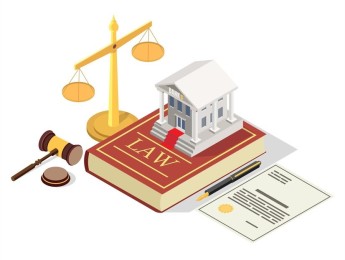The gas and oil industry is extremely vast globally, which has led to strict laws and regulations monitoring all areas of the industry to ensure everyone involved is safe and protected.
Extensive knowledge of commercial contracts is extremely important in this industry. Gas and oil companies rely heavily on their contracts to protect both buyer and seller in their transactions, as this industry can come with extensive legal risk. A wide variety of contracts can be created, ranging from sales to transportation and general operations. These contracts can be adjusted for both the organisation's upstream and downstream practices.
Those involved with creating these contracts need to be competent in related legislation, maintain the organisation’s goals, and ensure full protection for themselves and the organisation. Various clauses must be included that guarantee indemnity, identify limitations, and exclude liability. Risk allocation is essential throughout these processes and needs to be effectively managed.
Upon completion of this course, participants will be able to:
- Understand the vitality of law and legislation in the gas and oil industry.
- Identify key commercial contracts of both the upstream and downstream sectors.
- Assess the commercial rationale, purpose and structure of these contracts.
- Comprehend the wide range of legal issues posed in these contracts.
- Understand how identified contract legal issues are resolved under major legal systems.
- Evaluate the advantages and disadvantages of various contractual solutions when combating legal problems.
- Review the legal framework of major legal regimes.
- Examine local, regional and international laws impacting industry standards.
This course is designed for anyone responsible for creating and maintaining legal contracts within the gas and oil industry. It would be most beneficial for:
- Business Owners
- Gas and Oil Contractors
- Account Managers
- Finance Managers
- Energy Directors
- Risk Analysts
- Energy Associates
This course uses a variety of adult learning styles to aid full understanding and comprehension. Participants will review genuine examples of gas and oil contracts and agreements to highlight key features and identify included clauses.
Participants will have the required tools to complete the provided learning exercises. They will participate in presentations, group discussions, and practical activities to ensure a full and comprehensive understanding of the taught content. To demonstrate their new knowledge, they will have the opportunity to create their own sales agreements reflecting their specific roles.
Day 5 of each course is reserved for a Q&A session, which may occur off-site. For 10-day courses, this also applies to day 10
Section 1: Introduction to Commercial Contracts
- Defining commercial contracts.
- The concepts and principles of oil and gas contract law.
- Key leaders influencing the oil and gas industry.
- Differentiating the contractual needs of upstream and downstream practices.
- The importance of risk management when creating legally binding contracts.
- Establishing the main contractual arrangements for both upstream and downstream practices.
Section 2: Join Operations and Unitisation Agreements
- Defining a Joint Operating Agreement (JOA).
- The concept, purpose and principles of JOA.
- Appointment, duties and removal of the operator.
- Roles and responsibilities of the operating committee.
- Sole risk and non-consent options.
- The concept, purpose and principles of a Unitisation Agreement (UA).
- The redetermination procedure in a UA and its consequences.
Section 3: Service Contracts and Agreements
- Understanding the role of service contracts.
- Maintaining risk management and establishing risk allocation provisions.
- Including indemnity and limitation of liability clauses when creating contracts.
- Identifying the different types of service contracts – drilling and farm-out agreements.
- The concept, structure and common issues faced in a drilling and farm-out contract.
- Establishing careful agreements on the acquisition and disposal of assets.
Section 4: Oil and Gas Sales Agreements
- Sale, purchase and transport agreements.
- Identifying different types of general contracts – CIF and FOB.
- Assessing the various types of industry-specific contracts – well support, joint exploration and development, bidding and lease exchange agreements.
- Understanding English law and the UN Sales Convention in relation to oil and gas sales.
- Basic rights and obligations of both parties under English law and the UN Sales Convention.
- Specific obligations of the seller under CIF and FOB contracts.
Section 5: Key Clauses in Contracts
- The vitality of managing risk with indemnity, limitation and exclusion of liability clauses.
- The purpose of these clauses and the consequences in failing to include them.
- Forms of exclusion clauses with common carve-outs.
- Reviewing the ‘knock for knock’ agreement with its benefits and limitations.
- Contractual guarantees, performances and penalties.
- Termination rights and force majeure
Upon successful completion of this training course, delegates will be awarded a Holistique Training Certificate of Completion. For those who attend and complete the online training course, a Holistique Training e-Certificate will be provided.
Holistique Training Certificates are accredited by the British Assessment Council (BAC) and The CPD Certification Service (CPD), and are certified under ISO 9001, ISO 21001, and ISO 29993 standards.
CPD credits for this course are granted by our Certificates and will be reflected on the Holistique Training Certificate of Completion. In accordance with the standards of The CPD Certification Service, one CPD credit is awarded per hour of course attendance. A maximum of 50 CPD credits can be claimed for any single course we currently offer.
- Course Code IND01-136
- Course Format Online, Classroom,
- Duration 5 days














